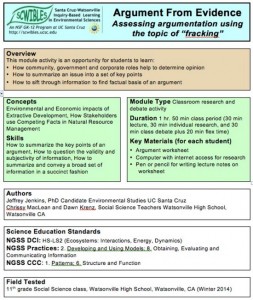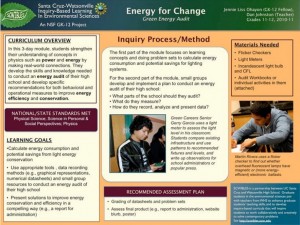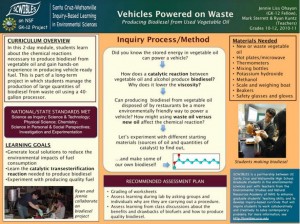 Assessing Argumentation Using the Topic of Fracking
Assessing Argumentation Using the Topic of Fracking
by Jeff Jenkins, Chrissy MacLean and Dawn Krenz
Students living in rural communities impacted by ongoing and proposed extractive mineral development (fossil fuels and mining) will gain a greater appreciation and understanding for how different segments of society (government, corporate, and community) produce information to serve their own interests and how ‘factual’ information is often contested between these groups.
Students learn: 1) How to summarize the key points of an argument, 2) How to question the validity and subjectivity of information, and 3) How to summarize and convey a broad set of information in a succinct fashion.
Docs: fulltext.pdf worksheet.docx
Keywords: communication, energy, facts, fossil fuels, fracking, governance, HS-LS2, models, patterns, structure, subjective

 Green Energy Audit
Green Energy Audit